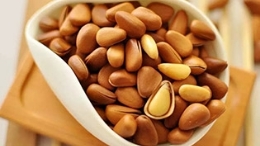Why cereals are very useful: 3 scientific facts
1 Whole grains – a source of vitamins and minerals
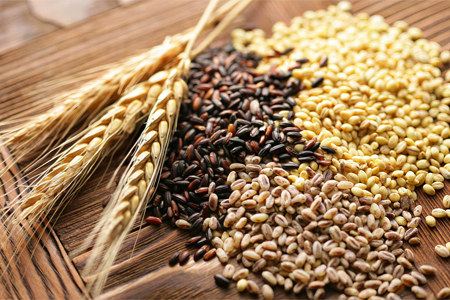
Refined cereals do not contain bran and germ, which is why they are deprived of the main part of the nutrients. By eating them, people get only empty kilocalories. Unlike them, whole grain cereals contain the fiber necessary for the intestines, B vitamins, iron, magnesium, manganese, selenium, and phosphorus. The amount of vitamins and minerals may vary, depending on the type of grain. For example, whole wheat and oats are rich in nutrients, while rice and corn are less, so some manufacturers additionally enrich it with vitamins and microelements to increase the nutritional value of refined grains.
2 Whole grains for longevity, weight loss, diabetes prevention and more
Eating whole grains does not lead to an increase in blood sugar levels. Carbohydrates from them are processed more slowly, which does not provoke weight gain. The health benefits of whole grains have been proven by numerous studies:
- Increase in life expectancy. Harvard scientists found that people who ate a lot of whole grains were 15% less likely to die due to cardiovascular disease.
- Weight control. People who eat whole grains are less likely to develop obesity. In particular, they have less fat on the abdomen, which means that the amount of harmful visceral fat is lower.
- Prevention of type 2 diabetes. Individuals who regularly include whole grains in their menu are less likely to develop diabetes.
- Prevention of cardiovascular diseases. Scientists have found that these formidable pathologies develop 30% less often in people who prefer whole grains to refined ones.
- Reducing the risk of developing colon cancer. It has been found that 3 servings of grains per day are enough to reduce the chance of colorectal cancer by 17%. This has been proven in several studies.
It should be taken into account that it is wrong to draw unambiguous conclusions on the basis of one or several studies. Most of them prove only the fact that a decrease in the risk of developing certain diseases is more likely in people who regularly eat whole grains.
However, there are also controlled studies that clearly show that whole grains are a great way to eliminate hunger for a long time and improve health outcomes, including reducing chronic inflammation and the risk of heart disease.
3 Whole grains and diabetes
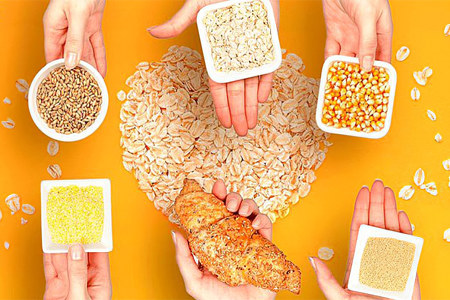
Grains are a source of carbohydrates, which can cause health problems for people with intolerance to them. In particular, we are talking about patients suffering from diabetes and following a low-carbohydrate diet. If they do not follow medical recommendations, their blood sugar levels will rise sharply. This is especially dangerous if a person does not receive insulin in parallel. For this reason, people suffering from metabolic syndrome or diabetes need to give up cereals, especially refined ones.
At the same time, not all cereals are equally harmful to people with diabetes. There are some that you can use and even need. So, in one study it was found that daily consumption of oatmeal in food can reduce the need for insulin by 40%.
People with diabetes need to remember that whole grains are less harmful than those that have been refined from the bran and germ.
According to the World Health Organization, cereals should account for about 40% of all food that a person eats per day. They are a source of energy, as they contain complex carbohydrates that take a long time to digest in the digestive tract and are slowly absorbed into the blood. In general, cereals help promote health and improve well-being.
1 Buckwheat
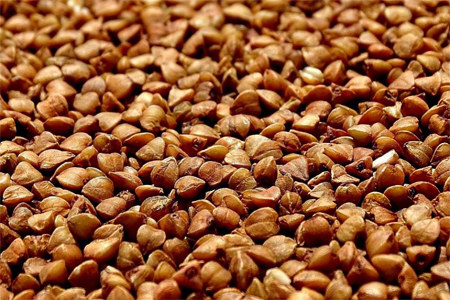
This cereal is a source of protein, healthy fatty acids, vitamins A, E, PP, B vitamins. It is rich in zinc, which is needed for healthy hair, skin and nails.
Buckwheat is often included in diets aimed at weight loss, because it is low in fat (no more than 3%), but at the same time 12% of proteins. The energy value of 100 g of the product is only 313 kcal.
Buckwheat acts as an antioxidant, as it contains a whole group of phenolic compounds. Scientists have found that eating it improves the contractility of the intestines, thereby helping to get rid of constipation. In addition, cereals help lower blood cholesterol, prevent the development of diabetes and hypertension.
When buying buckwheat, you should remember that it is divided into 2 types: whole grains, known as core and fine fraction – done.
2 Bulgur
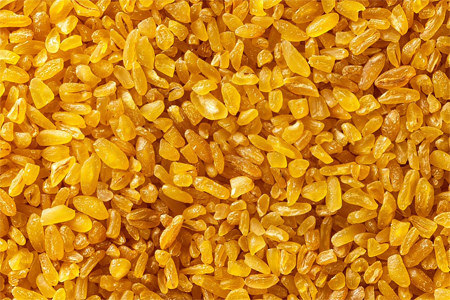
Bulgur is less popular than buckwheat, but the benefits of eating it can be similar. This cereal is dried and peeled grains of young wheat. It is rich in B vitamins, vitamin K and E, supplies iron, magnesium, calcium, potassium and copper to the body, as well as beta-carotene. 100 g of the product contains 12.3 g of proteins.
The use of bulgur in food allows you to normalize the work of the digestive tract. Groats are especially useful for the intestines: passing through it, like a brush, it absorbs and removes undigested residues, prevents rotting and flatulence. As a result, vitamins and other nutrients are absorbed into the blood faster, and metabolic processes improve.
Bulgur can be eaten to improve liver function, as it stimulates the flow of bile.
3 Oatmeal
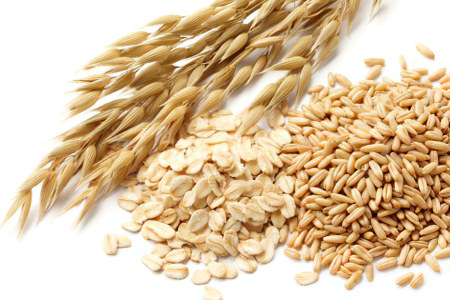
Oatmeal is a product that is obtained from oat grains, unrefined from germs and bran. It contains vitamins and minerals, including:
- Tocopherol;
- B vitamins;
- Vitamin A;
- zinc;
- Magnesium;
- Potassium.
The beta-glucan found in oatmeal helps lower blood cholesterol levels. The product acts as a means to increase immunity, it improves digestion, lowers blood glucose levels. Whole grain oats have all of these properties.
In contrast, peeled oatmeal does not contain a top layer. It goes on sale after steaming and pressing. This leads to the fact that some of the nutrients are simply lost. However, even in this form, the product has a positive effect on the functioning of the gastrointestinal tract.
Another type of oatmeal is porridge for quick brewing. They do not bring any health benefits, and sometimes they can even harm. They contain flavors, sweeteners, and other food additives that are best avoided.
4 Barley groats
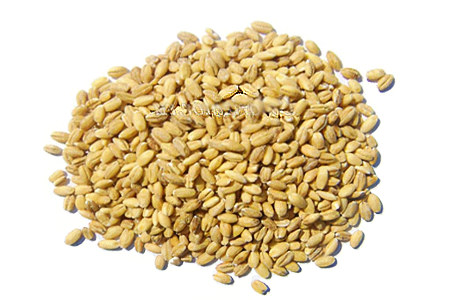
Barley groats are obtained from the barley kernel. The product has a diuretic effect, helps fight inflammation, and rids the body of toxins. It contains B vitamins, vitamin A, tocopherol, vitamin PP, iodine, phosphorus, potassium and iron.
Barley porridge is a source of fiber, which is necessary for the normal functioning of the digestive tract. However, children under 2 years of age should not be offered it, as at this age it will be difficult for the body to digest the product.
5 Corn grits
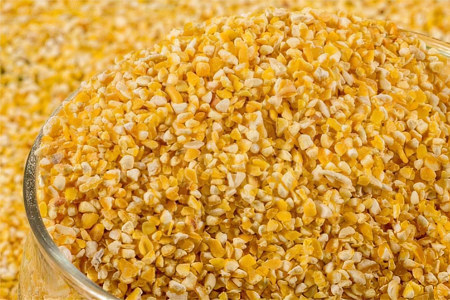
The benefits of corn grits are not lost even during heat treatment, so porridge cooked from it has all the properties of whole grains. It is rich in antioxidants and is gluten-free.
The use of corn grits in food allows you to normalize the intestinal microflora and gently cleanse it of undigested residues. Corn porridge is a source of B vitamins, vitamin E, A and H. It contains calcium, magnesium, iron, tryptophan and lysine.
Regular consumption of corn porridge helps lower blood cholesterol, prevents the development of diseases of the liver, gallbladder, stomach.
6 Rye groats
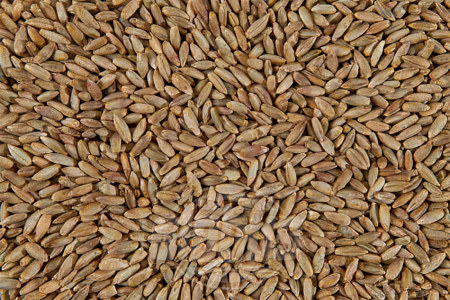
Rye groats are obtained from rye grains. This cereal has the beneficial properties of wheat, but it has less gluten. Therefore, when compiling a diet, it is more often used by people who adhere to the principles of proper nutrition. Rye groats have an optimal balance of amino acids and are rich in dietary fiber.
Its use in food helps to strengthen the immune system. Rye groats can be used as a means for the prevention of blood diseases. It is often used in the preparation of pastries, such as bakery products. So, rye bread has a slight laxative effect, but a decoction of cereals, on the contrary, strengthens.
7 Quinoa
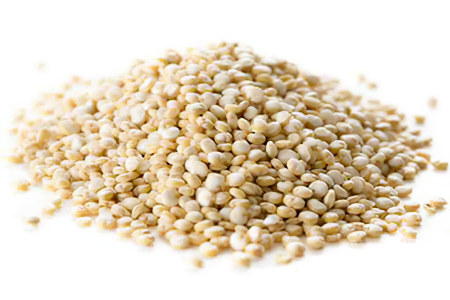
This cereal is a cereal grain, which is obtained from a plant belonging to the amaranth family. It supplies protein and fiber to the body. It contains about 14% protein and 64% complex carbohydrates. Its use in food allows you to stop inflammatory processes. You can use the product as an additional source of antioxidants.
Eating a serving of quinoa, a person saturates the body with phosphorus, magnesium, B vitamins, potassium, sodium, manganese, selenium, and folic acid. The product can be eaten in its pure form, using as a side dish for main dishes. Soups are cooked with it, salads are prepared.
8 Fricke
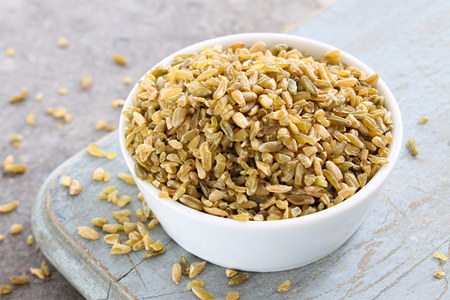
Freekeh is a product that is obtained by roasting soft young wheat. Groats are rich in proteins and carbohydrates (12% and 72% respectively). Once in the digestive tract, it works on the principle of a probiotic, stimulating the growth of beneficial microflora.
Freekeh promotes rapid satiety, eliminating hunger for a long time. At the same time, it supplies the body with B vitamins, tocopherol, ascorbic acid, vitamin A, sodium, calcium and iron.
9 Brown rice
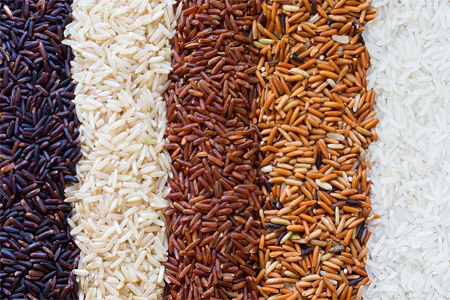
Rice that has not been cleaned is brown. This shade is the result of the presence of bran in the product, which is a source of vitamin PP, B vitamins, antioxidants, as well as phosphorus and magnesium.
Eating brown rice normalizes the digestive tract, cleanses the intestines of toxins. It can be used as a means to combat vegetative-vascular dystonia.
Rice eliminates hunger for a long time, improves skin condition, improves immunity. Its inclusion in the diet prevents the development of arthritis, arthrosis and dermatitis.
10 Couscous
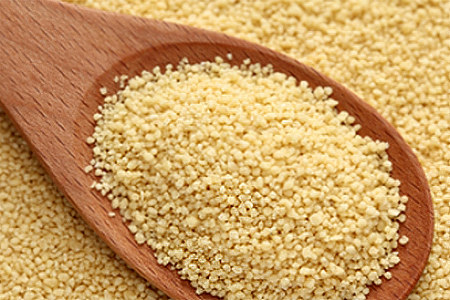
Couscous is a product obtained from durum wheat. Before eating, it is poured with boiling water and insisted, or steamed.
Croup helps prevent the development of cardiovascular diseases, diabetes and oncology.
Couscous is rich in antioxidants, particularly selenium. Grain normalizes the hormonal background, strengthens the immune system.
What grains can be harmful?
Refined cereals
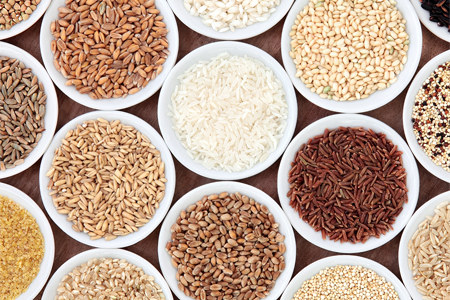
To get only benefit from cereals, you should stop eating refined crops. Outwardly, they do not differ from whole grains, but at the same time they are devoid of useful components. Such a product is a source of fast carbohydrates, a large number of calories and starch. Even the protein in them remains quite a bit.
Carbohydrates from refined cereals are quickly absorbed into the blood from the gastrointestinal tract, which leads to spikes in glucose and threatens the development of diabetes. Immediately after eating them, blood sugar levels rise sharply, and then also fall rapidly. As a result, there is a feeling of hunger, which causes a person to overeat. Such food is a direct path to obesity.
Peeled cereals can cause diseases associated with metabolic disorders. They provoke insulin resistance, type 2 diabetes and cardiovascular pathologies. At the same time, such cereals are deprived of benefits, so they are often called “empty calories”.
Cereals high in gluten
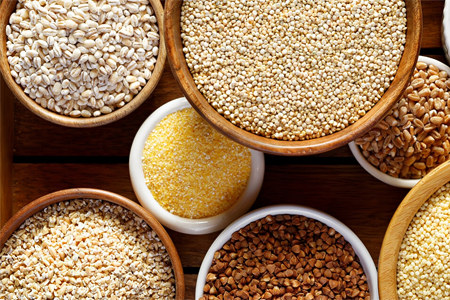
Gluten is present in barley, wheat, spelled and rye. Some people have an intolerance to this substance. They suffer from the so-called celiac disease (celiac disease) or hypersensitivity to gluten.
Globally, about 0.7-1% of people are affected by celiac disease, and about 5-6% are hypersensitive to gluten. If patients with this diagnosis eat foods containing gluten, they will experience disorders in the digestive tract. However, even they should not exclude other cereals from the diet. For example, they can include corn, oats, quinoa, rice in the diet.
Cereals – a source of antinutrients
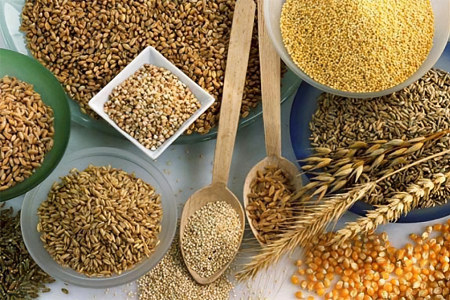
You can often come across the opinion that cereals should be discarded because of their antinutrients (substances that are present in plant foods). Once ingested, they disrupt digestion and prevent other nutrients from being absorbed normally. Antinutrients include lectins, phytic acid, and more. In particular, phytic acid binds minerals, preventing them from being absorbed in the intestine, and lectins can even damage its walls.
It should be understood that lectins are present not only in cereals, but also in nuts, seeds, fruits, vegetables, and legumes, so it is impossible to avoid them from entering the body. In fact, it is not difficult to reduce their number in products. Pre-treatment copes with this task: germination, soaking, fermentation. But even without these methods of preparation, the benefits of whole grains far exceed the minimal harm that antinutrients can do to the body. Therefore, it is irrational to exclude them from the menu.
Which food is better – with or without cereals?
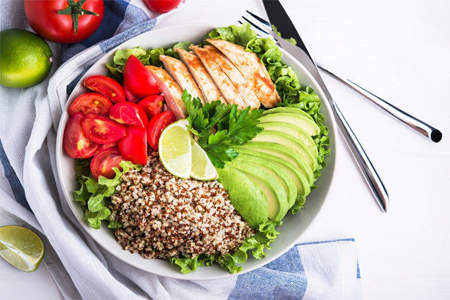
Scientists have long thought about what will happen to the body if grains are completely excluded from the menu. To do this, they observed people who followed a paleo diet and a low-carbohydrate diet. Both one and the second nutrition system really leads to weight loss, loss of fat deposits in the waist area and improved health indicators.
However, it is impossible to unequivocally state that all positive effects were achieved only due to the exclusion of cereals from the diet. They made only one conclusion: to stay healthy, it is not necessary to include them in the menu.
In addition, there are many studies proving the benefits of the Mediterranean diet, which includes whole grains. People who adhere to it not only have a stable weight, but also suffer less from cardiovascular diseases. Therefore, you can stay healthy by eating cereals and even giving them up.
Conclusion
To include cereals in the diet or not, each person must decide for himself. If cereals are to your taste and do not cause negative reactions of the body, then there are no good reasons to refuse them. The main thing is to give preference to whole grains that have not undergone pre-processing.
If a portion of any cereal leads to a deterioration in well-being, then it is not necessary to forcefully eat it. Grains contain nutrients, but people know of many other foods that can replace them. After all, what is good for one person can be harmful to another.


